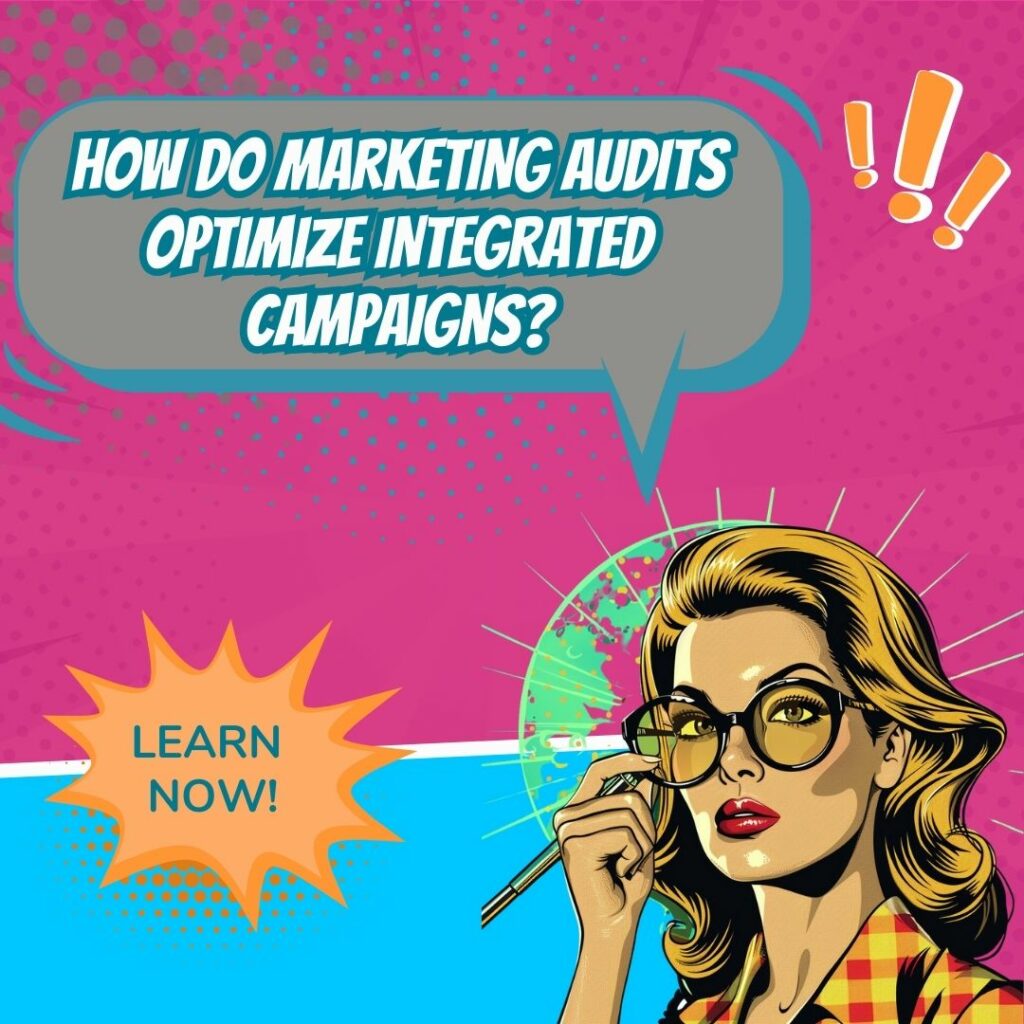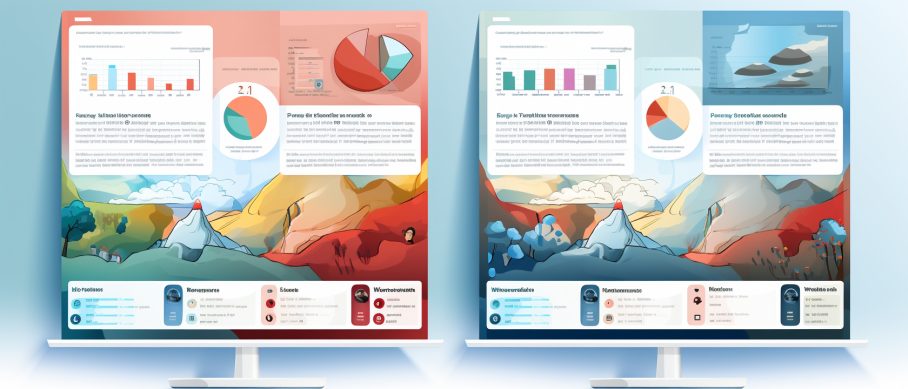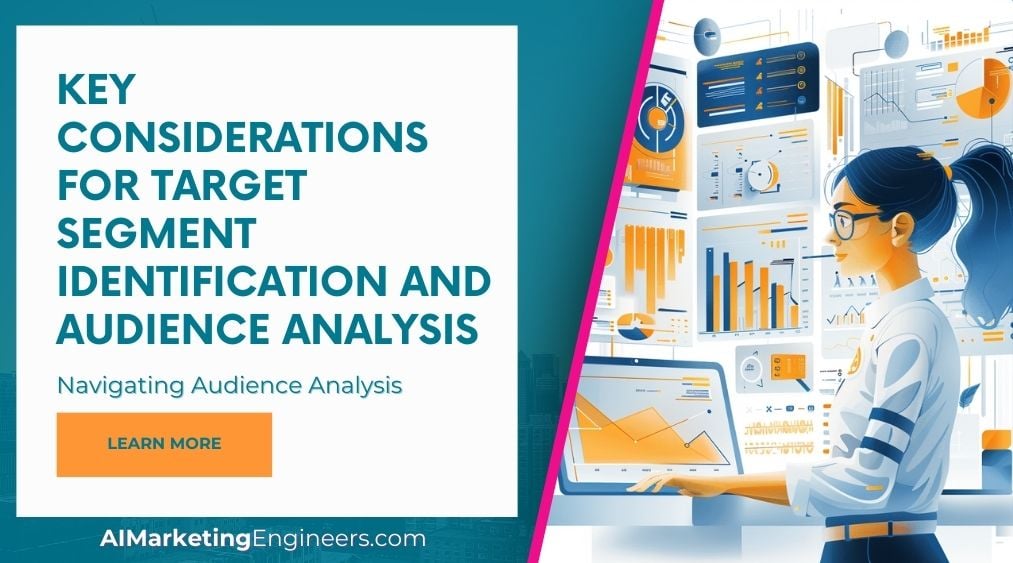Key Takeaways
✅ Embracing a Holistic Strategy: Align goals, understand the audience, and synchronize channels for effective marketing. Integrate SEO and PPC using MarTech tools for a unified approach.
✅ Data-Driven Decision-Making: Use data to guide marketing strategies. Cross-channel audits and advanced attribution models can boost ad spending efficiency and ROI.
✅ Collaboration and Communication: Foster collaboration across departments with shared KPIs and robust communication platforms. Align sales and marketing to improve customer experience and ROI.
Introduction
In the realm of modern marketing, achieving synergy across all campaigns is essential for maximizing impact and driving growth. Marketing audits serve as a powerful tool to evaluate and optimize your integrated campaigns, ensuring that each element works harmoniously towards your business goals. By systematically analyzing all aspects of your marketing efforts, you can uncover valuable insights and make informed decisions that enhance overall campaign performance.
A comprehensive marketing audit examines the alignment and effectiveness of your strategies across various channels, from digital advertising to content marketing and social media. This process identifies strengths, weaknesses, and opportunities for improvement, enabling you to refine your approach and achieve greater synergy. With the right insights, businesses can create more cohesive and efficient marketing campaigns, leading to better engagement, higher conversion rates, and increased ROI.
Top Statistics
| Top Statistics | Insight |
|---|---|
| Integration of Sales and Marketing Strategies: 80% of companies report that aligning sales and marketing strategies has improved their overall performance. | This statistic emphasizes the significance of integrated strategies for achieving comprehensive business improvement. |
| Digital Marketing and Sales Synergy: 70% of businesses see increased revenue when sales and marketing teams are aligned. | When businesses align their teams, they often see a remarkable increase in revenue, highlighting the financial benefits of synergy. |
| Revenue Growth: Companies that integrate sales and marketing strategies are expected to see a 20% increase in revenue. | Integrated efforts in these areas can drive significant increases in revenue, making it an essential focus for growth. |
| Efficiency and ROI: Integrated sales and marketing strategies can lead to a 15% reduction in operational costs and a 12% increase in ROI. | Achieving better efficiency and higher ROI showcases the economic advantages of merging these disciplines. |
| Customer Experience: 80% of customers report increased trust and loyalty when the sales and marketing journey is seamless. | Delivering a seamless experience builds trust and loyalty, which are crucial for customer retention and long-term success. |
The Importance of Integrated Campaigns
A holistic approach in marketing is essential to addressing modern consumer behavior effectively. Aligning goals and synchronizing channels ensure a seamless customer journey, presenting a cohesive brand image. Disjointed marketing campaigns often lead to a fragmented customer experience, diluting brand messaging and reducing overall efficiency. By integrating campaigns, businesses can streamline efforts, foster greater brand loyalty, and maximize the return on investment (ROI).
Conducting Cross-Channel Audits
Cross-channel audits are critical for evaluating the performance of each marketing channel. This process involves tracking, analyzing, and understanding the unique influence each channel exerts on the overall campaign. Integrating SEO and PPC strategies can reveal valuable keyword insights, allowing marketers to enhance both visibility and engagement. Utilizing MarTech tools helps streamline communication and collaboration, ensuring team members are aligned and working towards a unified goal. Effective audits enable businesses to identify gaps and opportunities, driving more informed and strategic decision-making.
Benefits of Integrated Campaigns
Implementing consistent brand messaging across multiple platforms leads to significant benefits. A cohesive brand presence can aid in revenue growth and improve employee retention by creating a unified, purpose-driven environment. Data-driven marketing allows for advanced attribution models, providing deeper insights into which strategies yield the best results. This, in turn, can lead to increased profitability and higher conversion rates. Companies that embrace integrated campaigns are better positioned to adapt to market changes and customer needs quickly.
Overcoming Obstacles
Despite the advantages, integrated campaigns come with their own set of challenges. Issues like SEO & SEM cannibalization, where different channels compete instead of complementing each other, can arise. Disconnected communication among teams can also hinder campaign effectiveness. Setting shared KPIs can help ensure all departments are moving in the same direction. Additionally, robust project management and communication platforms can facilitate better coordination and reduce miscommunication, leading to smoother campaign execution.
Embracing Data-Driven Decision-Making
Incorporating data analysis into marketing strategies is fundamental for ongoing success. Continuously analyzing performance data allows marketers to adapt their strategies in real time, addressing any inefficiencies swiftly. Data-driven decision-making paves the way for transformative collaborations, elevating a brand’s presence in the competitive digital marketing landscape. This proactive approach to utilizing insights helps businesses stay ahead of trends and maintain a dynamic and effective marketing strategy.
AI Marketing Engineers Recommendation
Recommendation 1: Conduct Cross-Channel Performance Reviews Regularly: By regularly conducting cross-channel performance reviews, businesses can uncover valuable insights into how different marketing channels are performing relative to one another. According to a 2023 study by Marketing Sherpa, companies that apply cross-channel performance reviews report a 25% increase in campaign effectiveness. These reviews reveal strengths and weaknesses, helping to reallocate budget and effort where you'll see the most return.
Recommendation 2: Implement Data-Driven Customer Segmentation Techniques: Leveraging data-driven customer segmentation allows marketers to tailor messages and offers more precisely, which can significantly boost engagement and conversion rates. Current trends indicate that personalization, driven by segmentation, can lift email open rates by 29% and increase conversion rates by as much as 20%, as reported by Epsilon in their latest findings. By using advanced segmentation methods like RFM (Recency, Frequency, Monetary), you can identify high-value customer groups and optimize your campaigns accordingly.
Recommendation 3: Utilize AI-Powered Analytics Tools for Real-Time Insights: To maximize the impact of integrated campaigns, employ AI-powered analytics tools that provide real-time insights and predictive analytics. Tools like Google Analytics 4 and HubSpot's Marketing Hub use machine learning to analyze vast amounts of data quickly and highlight actionable trends. Gartner's 2022 report shows that 75% of marketing leaders who use AI-driven analytics tools witnessed a 15% increase in marketing ROI within six months. These tools help you fine-tune ongoing campaigns and make data-backed decisions swiftly.
Relevant Links
- Revolutionize Your Digital Marketing with Advanced AI Technology
- Learn the Key Factors for Setting Impactful Campaign Goals
- Master Campaign Reach and Audience Size for Market Penetration
- Harness User Behavior Data to Drive Marketing Decisions
Conclusion
Unlocking synergy in marketing is no longer an option but a necessity. Integrated campaigns are vital for ensuring that marketing efforts are aligned, goals are synchronized, and channels work in harmony. Without this holistic approach, businesses risk a fragmented customer experience and efficiency losses. Cross-channel audits play a pivotal role in this process by evaluating performance across different channels, integrating SEO and PPC, and leveraging MarTech tools for seamless communication. The benefits of integrated campaigns include not only revenue growth and improved employee retention but also the ability to drive profitability and conversions through data-driven marketing and advanced attribution models.
Overcoming obstacles like SEO and SEM cannibalization demands shared KPIs and robust project management tools to foster clear communication. Embracing data-driven decision-making is key to adapting strategies and achieving marketing success, setting the stage for transformative partnerships that elevate brand presence. For marketing professionals, the takeaways are clear: a holistic, data-driven approach to integrated campaign optimization isn’t just beneficial—it’s essential. By conducting thorough cross-channel audits and leveraging holistic data insights, businesses can unlock new levels of synergy, driving business growth and improving the customer journey.
FAQs
Question 1: What is the purpose of a marketing audit?
Answer: A marketing audit assesses the value of current strategies, identifying areas for improvement and ensuring alignment with business objectives.
Question 2: Why is a holistic approach important in digital marketing?
Answer: A holistic approach helps to avoid siloing efforts into one strategy, ensuring that all marketing channels work together to achieve business goals.
Question 3: What are the key components of a successful merger?
Answer: Key components include conducting a thorough analysis, engaging stakeholders, creating a synergy realization roadmap, fostering collaboration, and leveraging technology and data.
Question 4: How can SEO and paid search complement each other?
Answer: SEO and paid search can work together by targeting users in all stages of decision-making, capitalizing on keywords, and building trust through consistent branding.
Question 5: What are the benefits of aligning synergy creation with organizational goals?
Answer: Aligning synergy creation with organizational goals ensures that the synergy contributes to the organization's mission, vision, and values, leading to long-term value creation.
Question 6: How does a digital marketing audit help in achieving marketing synergy?
Answer: A digital marketing audit helps by identifying strategic gaps, offering improvement suggestions, and ensuring that all marketing channels are aligned with business objectives.
Question 7: What are the key questions to ask during a social media audit?
Answer: Key questions include whether the account is structured for efficiency, if there are untapped audiences, and if tracking is configured accurately.
Question 8: How can a Google Analytics audit improve decision-making?
Answer: A Google Analytics audit ensures that historical data is accurate, which is critical for making informed strategic decisions.
Question 9: What are the key areas to focus on during a paid search audit?
Answer: Key areas include the structural setup of campaigns, alignment with objectives, keyword strategy, and opportunities for expansion.
Academic References
- Naik, P. A., & Raman, K. (2003). Understanding the Impact of Marketing Communication and Targeting on Consumer Behavior. Marketing Science, 22(1), 76-94. This study highlights the importance of integrating offline and online data for holistic campaign analysis, demonstrating the significant impact of connecting both data pools to drive cohesive marketing strategies.
- Voorveld, H. A. M., Neijens, P. C., & Smit, E. G. (2011). Opening the Black Box: Understanding Cross-Media Effects. Journal of Marketing Communications, 17(1), 69-85. This research examines cross-media promotion, proving the incremental benefits of running coordinated marketing efforts across various channels, which supports the concept of synergy in advertising campaigns.
- Beckers, S. F. M., van Doorn, J., & Verhoef, P. C. (2018). Good, Better, Engaged? The Effect of Customer Engagement on Product Returns. Journal of Marketing Research, 55(5), 696-712. This study explores omnichannel marketing, assessing the positive and negative implications of marketing efforts across different distribution venues and their interactions.
- Keller, K. L., & Lehmann, D. R. (2006). Brands and Branding: Research Findings and Future Priorities. Marketing Science, 25(6), 740-759. This study delves into the complex interplay between different forms of media, confirming their influence on each other and the importance of integrated marketing communication strategies.













